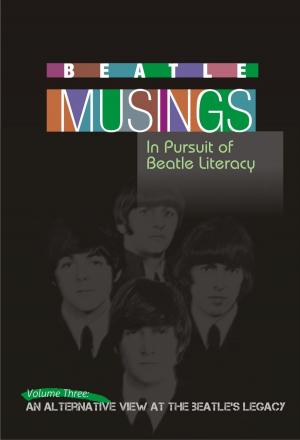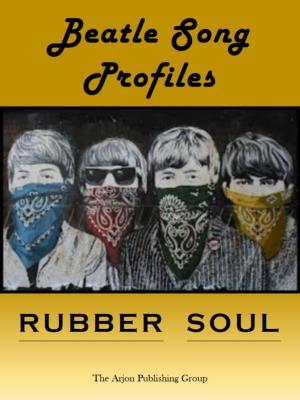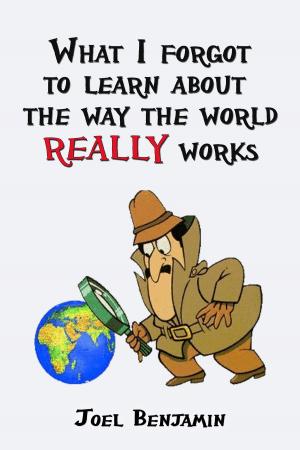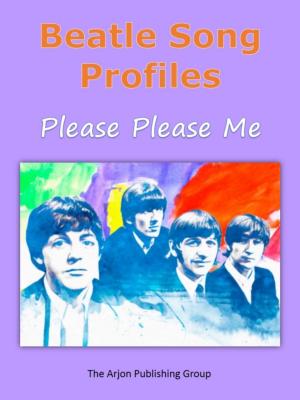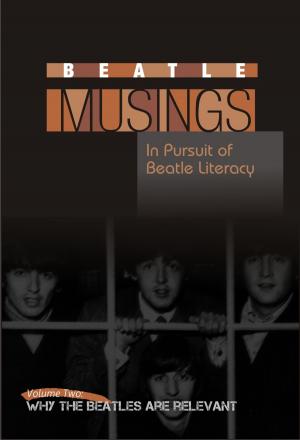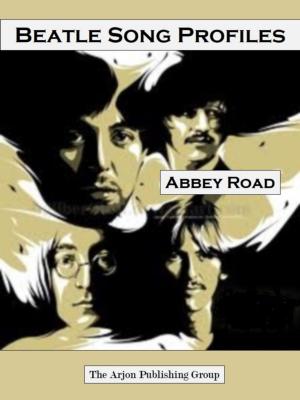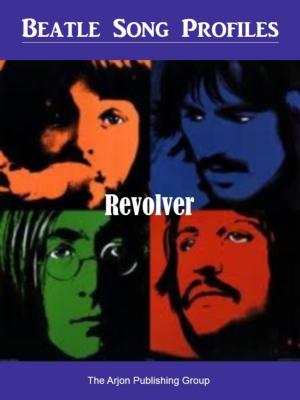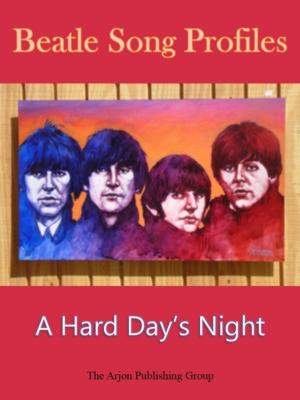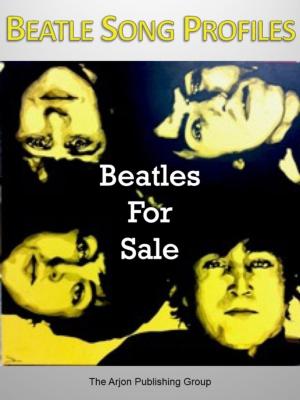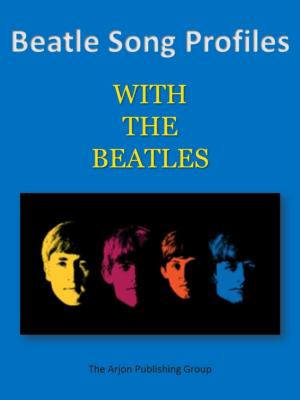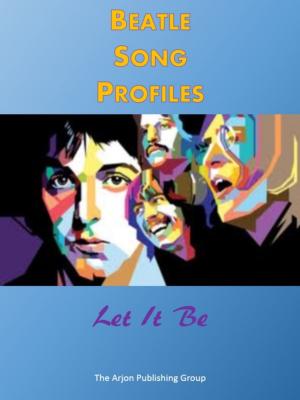Beatle Song Profiles: Help! (and assorted singles)
Nonfiction, Entertainment, Music, Theory & Criticism, Appreciation, Pop & Rock, Popular, Music Styles| Author: | Joel Benjamin | ISBN: | 9789657570005 |
| Publisher: | Arjon Publishing | Publication: | August 5, 2012 |
| Imprint: | Language: | English |
| Author: | Joel Benjamin |
| ISBN: | 9789657570005 |
| Publisher: | Arjon Publishing |
| Publication: | August 5, 2012 |
| Imprint: | |
| Language: | English |
Each of the 14 songs from Help! and an additional eight songs that were released around this time period but did not appear on any album are “profiled” in this volume of Beatle Song Profiles.
Beatle Song Profiles are concise commentaries on every Beatle song. The song profiles describe the song’s origins and inspiration, what The Beatles themselves said about it, what was unique about the music and/or production of the arrangement or vocals, and the deeper meaning of the lyrics.
Beatle Song Profiles is a unique educational tool to enable readers to learn about every song on all 12 albums The Beatles recorded.
Sample song profile from Help!
Help!
Help! is nostalgia emerging from Lennon’s wistful yearnings for a simpler past unburdened by the excesses of Beatlemania.
He commented:
“It’s me singing “help”, and I meant it.”
Lennon wrote it as a mid-tempo ballad but in the studio it was sped-up by George Martin by adding Harrison’s guitar riffs and the “reverse call-and-response” vocals. The tempo shift worked well as it emphasized the speaker’s growing desperation. Yet after the tracked was laid down, Lennon thought it was recorded too fast and tried to be too commercial.
Help! was the first Beatle song where the words were as least as important as the music. It introduced an entirely new phase in Lennon’s career as a songwriter as from then on, he would consciously draw up on the power of his own celebrity for inspiration and expression
Says Tim Riley:
“The tempo shift served to further underscore the speaker’s growing desperation as Paul and George anticipate nearly every line Lennon sings in the verse. This helps the listener to identify these voices as being inside the speaker’s head wondering where they will lead the speaker and what consequences these “suggestions” will bring. By the time Lennon sings “open up the doors,” the voices are completely caught up in the nightmare.
Riley points out how the drums drive the verse into the refrain with a determined, agitated fill that is at once constricted and lunging.
He writes:
“As Lennon screams “Won’t you please, please help me” it is to express complete and total devastation. As the band slowly rejoins him for the final refrain, the gears begin to churn again, and he gets caught up in the motion one last time. Throughout, Lennon is crying out against a force or forces that are much bigger than him and more ominous than he will be able to deal with.”
Even while the listener is totally riveted by "Help's" hard driving beat and desperately anxious lyrics, its flat ballad form and prominent acoustic rhythm guitar is highlight by George. It gives the track a folksy, stylistic cross current that provides the background canvas for this and most of the other songs on the album. Although he didn’t write the song- he commands it. It is his guitar playing that is allowing John’s voice to soar.
Ringo’s overdubbed tambourine part, close-miked and placed up front in the mix, differentiates the chorus texture from that of the verse. Rhythmically, it is intensifying the accompaniment he provides to Lennon’s desperate plea. Harrison’s guitar stab on this record is what gives the song its clean, fresh, rippling sound that had never been heard before by the general public.
The composition presents the idea that one needs meaningful relationships to manage one’s existence- as an epiphany- a sudden recognition of self-evident facts. The satisfaction gained from contact with others extends beyond the need to fulfill bodily desire; it is required to complete one’s sense of self and derive the confidence to navigate one’s life.
Each of the 14 songs from Help! and an additional eight songs that were released around this time period but did not appear on any album are “profiled” in this volume of Beatle Song Profiles.
Beatle Song Profiles are concise commentaries on every Beatle song. The song profiles describe the song’s origins and inspiration, what The Beatles themselves said about it, what was unique about the music and/or production of the arrangement or vocals, and the deeper meaning of the lyrics.
Beatle Song Profiles is a unique educational tool to enable readers to learn about every song on all 12 albums The Beatles recorded.
Sample song profile from Help!
Help!
Help! is nostalgia emerging from Lennon’s wistful yearnings for a simpler past unburdened by the excesses of Beatlemania.
He commented:
“It’s me singing “help”, and I meant it.”
Lennon wrote it as a mid-tempo ballad but in the studio it was sped-up by George Martin by adding Harrison’s guitar riffs and the “reverse call-and-response” vocals. The tempo shift worked well as it emphasized the speaker’s growing desperation. Yet after the tracked was laid down, Lennon thought it was recorded too fast and tried to be too commercial.
Help! was the first Beatle song where the words were as least as important as the music. It introduced an entirely new phase in Lennon’s career as a songwriter as from then on, he would consciously draw up on the power of his own celebrity for inspiration and expression
Says Tim Riley:
“The tempo shift served to further underscore the speaker’s growing desperation as Paul and George anticipate nearly every line Lennon sings in the verse. This helps the listener to identify these voices as being inside the speaker’s head wondering where they will lead the speaker and what consequences these “suggestions” will bring. By the time Lennon sings “open up the doors,” the voices are completely caught up in the nightmare.
Riley points out how the drums drive the verse into the refrain with a determined, agitated fill that is at once constricted and lunging.
He writes:
“As Lennon screams “Won’t you please, please help me” it is to express complete and total devastation. As the band slowly rejoins him for the final refrain, the gears begin to churn again, and he gets caught up in the motion one last time. Throughout, Lennon is crying out against a force or forces that are much bigger than him and more ominous than he will be able to deal with.”
Even while the listener is totally riveted by "Help's" hard driving beat and desperately anxious lyrics, its flat ballad form and prominent acoustic rhythm guitar is highlight by George. It gives the track a folksy, stylistic cross current that provides the background canvas for this and most of the other songs on the album. Although he didn’t write the song- he commands it. It is his guitar playing that is allowing John’s voice to soar.
Ringo’s overdubbed tambourine part, close-miked and placed up front in the mix, differentiates the chorus texture from that of the verse. Rhythmically, it is intensifying the accompaniment he provides to Lennon’s desperate plea. Harrison’s guitar stab on this record is what gives the song its clean, fresh, rippling sound that had never been heard before by the general public.
The composition presents the idea that one needs meaningful relationships to manage one’s existence- as an epiphany- a sudden recognition of self-evident facts. The satisfaction gained from contact with others extends beyond the need to fulfill bodily desire; it is required to complete one’s sense of self and derive the confidence to navigate one’s life.

